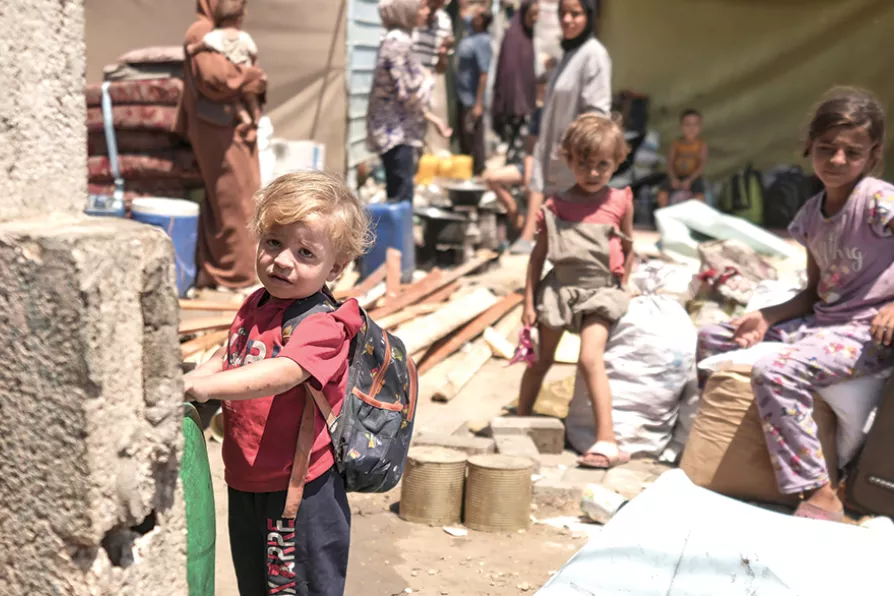As the RMT Health and Safety Conference takes place, the union is calling for urgent action on crisis of work-related stress, understaffing and the growing threat of workplace assaults. RMT leader EDDIE DEMPSEY explains

 NO ONE IS SAFE: Palestinian children forced to evacuate a school in eastern Deir al-Balah, Gaza Strip on August 16 2024, after the Israeli
military told civilians to evacuate
NO ONE IS SAFE: Palestinian children forced to evacuate a school in eastern Deir al-Balah, Gaza Strip on August 16 2024, after the Israeli
military told civilians to evacuate
ON AUGUST 16, the Palestinian Ministry of Health confirmed that a 10-month-old baby in Gaza had been infected with polio.
This announcement, though heartwrenching, was not unexpected given that the polio virus had been detected in Gaza’s wastewaters shortly before.
Public health experts had long warned that without an immediate ceasefire and the entry of essential supplies, infectious diseases could kill even more children than Israeli bombs already have.

This time it is joined by famed Amazon union organiser Chris Smalls and the new vessel, the Handala, will carry baby formula for Gaza’s starving children just weeks after Israeli forces abducted the Madleen’s crew in international waters, reports ANA VRACAR

Kitchens are expected to run out of food in coming days












